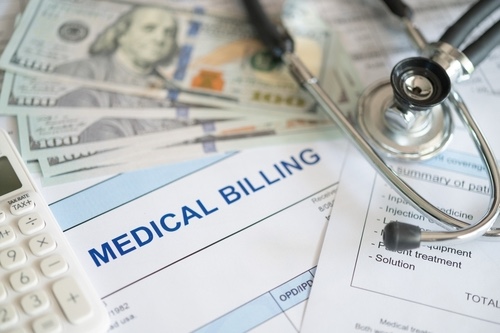Does Florida Offer Short-Term Disability Benefits?
As workers’ compensation lawyers with vast experience representing work injury victims, we know people have many questions. One of such questions is whether they can receive short-term disability benefits. This article will shed light on this and explain the difference between short-term disability benefits and workers’ comp. You can also consult our workers’ compensation attorneys at Miami Lawyers 360 for more information.
What Is a Short-Term Disability and Workers’ Comp Benefit?
A short-term disability (STD) is a voluntary benefit offered by an employer to an employee. Usually, the employee handles all or a significant part of the payment. It often covers injuries suffered or an illness unrelated to their work duties.
With STD, the employee would be able to get some benefits while away from work and recovering. The money comes from the disability insurance coverage under the company’s employee benefit plan. Workers’ comp differs from this.
Workers’ compensation is insurance taken out by an employer to compensate their employees who suffer an injury on the job. It also applies to employees who develop an illness due to hazardous work conditions. Unlike STD which is a voluntary benefit, workers’ comp is not. It is a legal requirement, and Florida laws provide that employers with more than four or more full-time or part-time staff must have the coverage.
Differences Between Short-Term Disability and Workers’ Comp Benefits
There are several differences between short-term disability and workers’ compensation benefits. Some of them are:
- STD offers you a lower percentage of your salary or earnings, while workers’ comp has a fixed fraction.
- Depending on the coverage, short-term disability is taxable while workers’ comp benefits are not taxable.
- Employees on short-term disability plans pay for out-of-pocket medical treatment costs, other deductibles, and copays. Workers’ comp reimburses the employee for all out-of-pocket expenses.
- Workers’ comp benefits last longer depending on injury time and when the employee attains Maximum Medical Improvement (MMI). STD coverage only applies for a few weeks.
- It is easier to litigate workers’ comp denials than it is for short-term disability coverage.
If what you want are benefits that would last a long time, it is better to ask your employer for workers’ comp. It would cover both lost wages, current medical treatment, and future costs of treatment.
Can I Get Short-Term Disability Benefit in Florida?
Unlike other states in the US, Florida does not provide short-term disability benefits to those who are unable to work due to work-related injury or illness. One way to receive help when you can’t work is through the disability insurance provided by your employer. However, employers are not mandated to provide STD benefits.
Another way is through the Social Security Administration (SSA). The SSA provides two programs for disability benefits. One is the Social Security Disability (SSDI) and the other, Supplemental Security Income (SSI). SDDI is for those whose employers paid taxes to the SSA while the employee worked for them.
SSI is for those whose working history doesn’t qualify them but who have low-income assets. Unlike workers’ comp, where the only criteria are suffering an injury or illness at work, SSDI and SSI have strict requirements. Also, you must have been unable to work for at least a year to get the benefits.
Another alternative to getting short-term disability in Florida is by buying coverage yourself. Note that the insurance policy will not cover pre-existing medical conditions unless it has existed for at least 12 months. Thus, you must purchase disability benefits ahead of time unless you want to risk them denying your claim.
How Do You File a Short-Term Disability Benefits Claim in Florida?
If you happen to buy a short-term disability plan or your employer has one, you can file a claim with the insurance carrier. Depending on the policy limits, the insurance provider will pay 50% to 60% of your regular earnings with a maximum dollar limit. If they approve your short-term disability benefits claim, the payment commences after the elimination period.
During the elimination period, insurance companies collect a certain amount of premium payments before paying out the policy. Lastly, the money will last only for a duration of time agreed by the policyholder when they bought the plan.
Get Help From Miami Lawyers 360!
Whether it’s short-term disability or workers’ comp benefits, insurance companies are always reluctant to pay. They know most of the loopholes and will exploit them to shortchange you. You can fight against them by getting an attorney.
At Miami Lawyers 360, we have workers’ comp attorneys who have spent years winning for clients against insurance providers. We will do the same for you if you give us the opportunity to work on your case. Schedule a meeting with us today for a free consultation.






